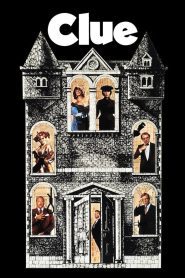
Video Sources 21 Views Report Error
Synopsis
In a groundbreaking reality TV show orchestrated by the U.S. government, viewers are drawn into a world of espionage where the line between fact and fiction blurs. This innovative program invites audiences to participate in elaborate undercover missions, immersing them in thrilling scenarios that mimic the high-stakes world of spies. As participants navigate through meticulously crafted situations, they quickly realize that their experiences may be more than just entertainment; they may be part of a larger agenda.
Each episode presents a new challenge, designed to test not only the participants’ skills but also their moral compass. As they engage in covert operations, they face ethical dilemmas that force them to confront their values and the implications of their actions. The show’s creators have ingeniously woven real intelligence tactics into the narrative, ensuring that viewers are not just passive observers but active players in a complex game of deception and intrigue.
As the series progresses, it becomes increasingly difficult to discern which elements are scripted and which are rooted in reality. Participants find themselves questioning their instincts and the authenticity of their fellow players. This uncertainty amplifies the tension, creating a captivating viewing experience that keeps audiences on the edge of their seats. The show cleverly challenges societal perceptions of espionage, pushing viewers to consider the moral ambiguities inherent in the world of spying.
Behind the scenes, the government utilizes the show as a unique tool for psychological experimentation, gauging public reactions and behaviors in response to real-time scenarios. The audience’s engagement with the program sparks conversations about surveillance, privacy, and the ethical implications of government-sponsored entertainment. As viewers tune in week after week, they are not only entertained but also unwittingly participating in a broader commentary on modern society’s relationship with authority and information.
As participants grapple with their missions, they form alliances and rivalries, mirroring the intricate dynamics of real intelligence operations. The emotional stakes rise as friendships are tested, secrets are revealed, and trust becomes a rare commodity. Each mission challenges participants to adapt, strategize, and think on their feet, all while navigating a web of deceit and manipulation.
Ultimately, the show’s unpredictable nature keeps audiences guessing, as they ponder the potential consequences of their involvement. Are they merely spectators in a game designed for their amusement, or do they hold the power to influence the narrative? As the lines between reality and entertainment continue to blur, viewers are left to wonder about the true nature of the missions they witness.
In a world where the thrill of espionage meets the complexities of human behavior, this reality TV show captivates its audience, inviting them to explore the darker sides of intrigue, trust, and deception. It is not just a show; it is a reflection of society’s fascination with the secretive world of spies and the moral quandaries that come with it, making for a compelling narrative that resonates on multiple levels.
Original title Espionage Tonight
IMDb Rating 4 2,294 votes
TMDb Rating 4 7 votes
Director
Director
Cast
Sam Jacobson
Fei Song
Nikos Papalexopoulous
Iskandar Yasin
Sydney Greenstreet
Elizabeth Geary
Valeria
Adi Shankar
Thomas Devlin
Tall Fellow


























